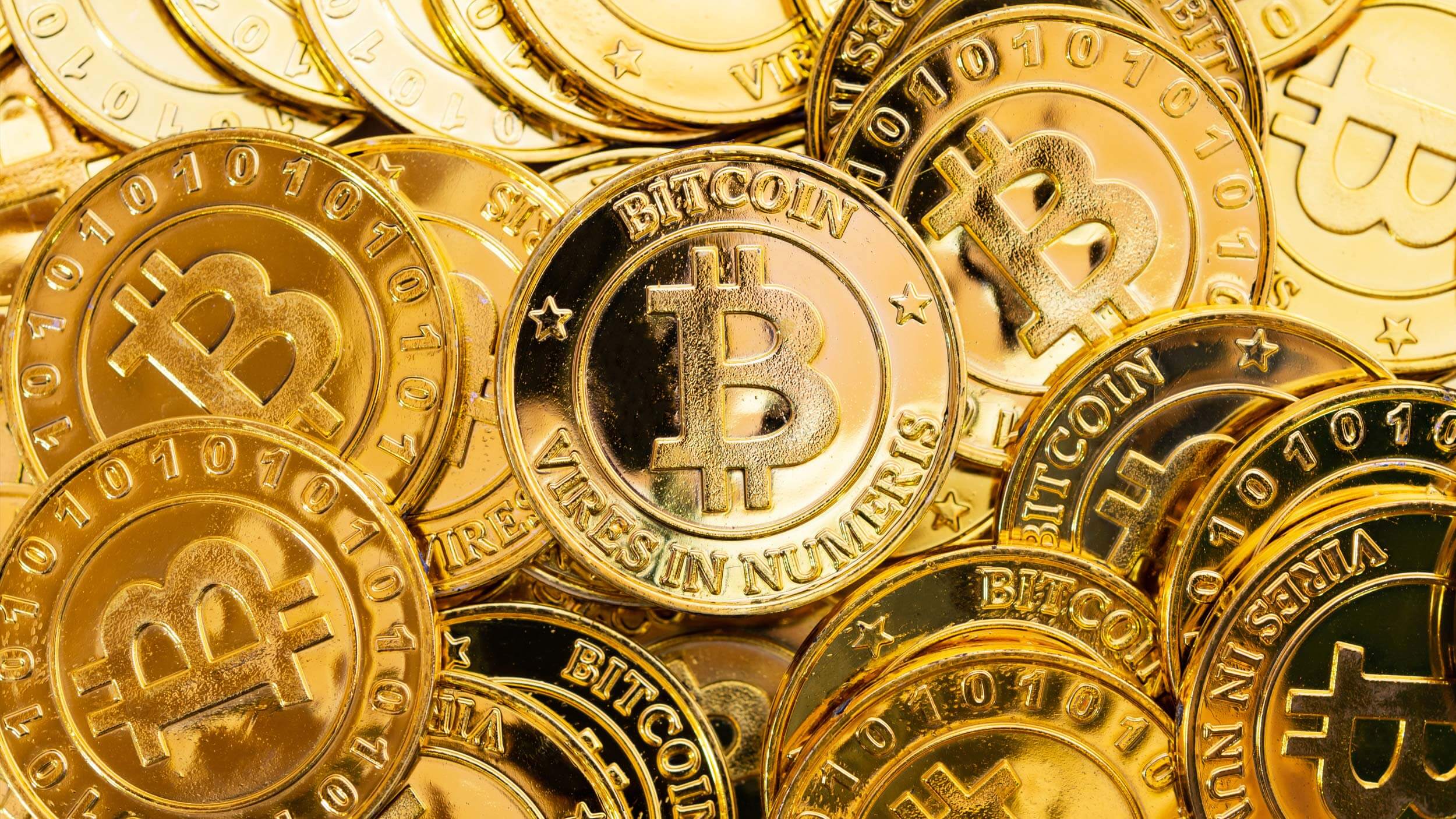A Crypto Self Directed IRA can be the cornerstone of a strong alternative investment strategy. The key is that the IRA account must be self directed so that it can make alternative investments. Cryptocurrency certainly is an alternative that bucks mainstream investments. To be clear, cryptocurrency and other crypto assets are allowed inside retirement accounts just like gold, real estate, stocks, bonds, and others.
IRS notice 2014-21 states, “virtual currency is treated as property for U.S. federal tax purposes” which also means any profits made on selling those currencies result in “general tax principles that apply to property transactions apply to transactions using virtual currency.” What traditional IRA account providers and most financial planners don’t tell you is that the IRS doesn’t control what your retirement account can invest in.
Rather than allowing alternative investments like crypto in a traditional IRA account, mainstream accounts only allow investments in self-serving Wall Street assets that all of us have seen fluctuate widely at the whim of government policies, international banks and other high-powered institutions. A cryptocurrency is a digital currency and is not issued by the government, central banks, or other financial institutions. Traditional assets like stocks move in sync. The markets are either up or down. Alternative investments made through a Self-Directed IRA are an essential element for a diversified portfolio.
What Is a Self Directed IRA?
A self directed IRA (SDIRA) is a type of individual retirement account that holds alternative assets such as real estate, commodities, tax liens, private equity placements, cryptocurrencies, and limited liability companies. You are a candidate for a self-directed IRA if you want a retirement investment plan that goes beyond traditional stocks, bonds, and mutual funds. A self directed IRA lets you put your unique knowledge and experience to work for your retirement portfolio.
At a high level, there are two types of self directed IRA accounts. The more restrictive is the custodian-controlled IRA. True investing freedom comes with the checkbook IRA. A custodian IRA has several drawbacks for the investor who wants total control over their retirement funds. The custodian is a middleman. Once you make an investment decision, the custodian must review and approve your decision. Only after that are your funds issued to make the investment. Among other complications, custodian approval can prevent, delay, and hinder time-sensitive investments. Additionally, although you can make alternative investments, the custodian is still in control of your IRA funds, so you pay transaction and/or asset fees, along with high annual maintenance fees.
The Nabers IRA LLC solution combines the best aspects of a self directed IRA with more investing freedom for you. Namely the freedom to invest in alternative assets with the flexibility of controlling your own Special Purpose LLC, where you retain full checkbook control. The checkbook IRA is actually a limited liability company (LLC) checking account that’s funded by your self directed IRA. You establish an LLC specifically for that purpose, with you as its manager. You open a checking account using the LLC’s name and tax ID. Your self directed IRA funds the checking account.
As the LLC manager, you write the checks or wire funds to purchase investments in the LLC’s name. Any income and expenses associated with those investments pass through the LLC to your checkbook IRA. No custodian required!
A Nabers checkbook IRA offers the diversification and control that savvy investors want:
- Grow wealth based on your knowledge and expertise. Self-direction gives you the power to invest in a wide variety of alternative assets not available in traditional retirement plans, such as real estate, crypto, promissory notes, business, and more.
- Make investments fast and easily. Checkbook Control lets you purchase assets in your IRA by just writing a check – no paperwork or authorization required.
- Always know your retirements are secure. Hold all your retirement funds in the bank of your choice, and never worry about who might be accessing your account.
- Avoid unnecessary fees. A checkbook IRA also allows you to personally make transactions through your checking account, eliminating costly and unnecessary custodian fees.
There are a few rules that you must follow with any self directed IRA. These include disqualified people and prohibited transactions. Disqualified persons are “off-limits” from doing deals with the retirement plan. Disqualified people include:
- You
- Your spouse
- Any fiduciary of the retirement plan (person who makes investment decisions for the plan).
- Companies that provide services to the IRA.
- Your lineal ascendants (parents, grandparents) or descendants (children, grandchildren, etc.), and spouses of your lineal descendants (son-in-law, daughter-in-law, etc.).
- A corporation (or other entity) that is 50% or more owned (directly or indirectly) by yourself, your spouse, or any of your lineal ascendants or descendants.
- An officer, director, 10% or more owner, or highly compensated employee of the corporation named above.
- A 10% or more (in capital or profits) partner or joint venturer of the corporation above.
Your self directed IRA can do business with everyone else, including uncles, aunts, cousins, sisters, brothers, stepbrothers, and step-sisters.
Equally important is understanding the types of transactions that disqualified people are prohibited from engaging in. Examples include:
- Sale or exchange, or leasing, of any property between a plan and a disqualified person. An example of this would be if your checkbook IRA sold a property to your mother.
- Furnishing goods, services, or facilities between a plan and a disqualified person. Examples of this might be buying a house with checkbook IRA funds and having your spouse perform the rehab or a daughter renting the house from the IRA.
- Transfer to, or use by, or for the benefit of a disqualified person involving the income or assets of a plan. An example of this could be you taking rent money earned by a property owned by your checkbook IRA and using that money personally.
Learn about these directly from the IRS. Or the specific laws are found here.
The prohibited transactions and disqualified persons may seem intimidating, but they are intended to avoid conflicts of interest that could compromise your retirement funds. Reality is a checkbook IRA opens an entirely new world of investment opportunities. Among these alternative opportunities is getting in on the ground floor with a Crypto Self Directed IRA.
You Can Buy Bitcoin With a Crypto Self Directed IRA
Yes, people with a Crypto Self Directed IRA do buy and hold cryptocurrency in their retirement portfolio. However, crypto is a little different than most other self directed investments. We make it easy by partnering with Gemini Trust Company to give you the best possible crypto trading experience with your Nabers Crypto Self Directed IRA. The difference is that buying or trading digital assets must be done through a digital wallet, which is linked to your checking account. Also, to hold cryptocurrency in a retirement account, the account owner must make the investments through an LLC. All of this is taken care of for you with a Nabers Crypto Self Directed IRA so that you always have full control through your checkbook.
The first thing you want to do is learn more about investing in cryptocurrencies. We’ve been investing in crypto since April 2013 and have put together an education series explaining the ins and outs of how your Nabers Crypto Self Directed IRA can hold crypto compliantly, and other tax advantages by using a Roth plan to grow your gains tax-free.
Nabers Group is by far the most experienced IRS-approved Crypto Self Directed IRA provider in the industry, helping you to compliantly structure your retirement account so you can not only purchase crypto, but also hold your own keys. That means you’re in charge of what types of coins you want to buy, how much, and you don’t have to compromise safety by handing over your private keys to a stranger.
- Crypto Education Series: Part I – Bitcoin Basics
- Crypto Education Series: Part II – Bitcoin In Your Retirement Account
- Crypto Education Series: Part III – Grow Your Gains Tax-Free with a Roth account
- Crypto Education Series: Bonus – Bitcoin FAQ
Nabers Group also makes it possible and easy to hold crypto in other tax-advantaged retirement accounts. A Solo 401k enables you to contribute the maximum each year towards your retirement. Both the Roth Crypto Self Directed IRA and the Roth Solo 401k allow holding crypto in a retirement account that allows you to withdraw your wealth tax-free during retirement.
When you work with Nabers Group, you have complete freedom. No longer are your hands tied to the investments your bank, other financial institution, or stockbroker offer. With checkbook control, you never need to ask for permission to make an investment. If crypto investing is what you want to do, then by all means invest today!
Advantages of A Self Directed Checkbook IRA
The self directed checkbook account structure is ideal for fast access to your funds to make new investments. It also makes it easy to invest in multiple assets, receive and deposit income, and pay bills for your IRA investments. Top benefits that come with checkbook control (including your Crypto Self Directed IRA) include:
- Full control – make your own investment decisions.
- Speed – acquire assets as quickly as you can write a check.
- Freedom – allows you to deposit income and pay bills for the asset.
- Flexibility – facilitates buying and managing multiple assets.
- Savings – reduces costs associated with a custodian-controlled self directed IRA.
- Protection – through the LLC, owners may enjoy better legal protection for their assets.
When it comes to crypto investing, the choice is easy. You must have total control of your funds, otherwise you put your retirement in jeopardy when you cannot make timely decisions. It is also important to consider the fee structure before investing with a self directed IRA.
How Do Taxes Work in a Crypto Self-Directed IRA?
Investing with a Crypto Self Directed IRA has the same tax advantages as investing in other alternative assets. The IRS has added a cryptocurrency question as the first item on the 1040 form, just below the individual’s contact information. Under U.S. tax law, the IRS classifies cryptocurrencies as property and subject to capital gains taxes. On the other hand, you only owe taxes when those gains are realized. The IRS has released two notices describing how existing general tax principles apply to cryptocurrencies. These are IRS Revenue Ruling 2014-21 and 2019-24. (You may also want to see FIN-2019-G001 for more detailed information about Certain Business Models Involving Convertible Virtual Currencies.).
From an IRS point of view, crypto is not treated as a currency. Traditional currency, such as dollars and euros are treated differently than digital currencies. IRS Notice 2014-21 states, “Virtual currency is treated as property for U.S. federal tax purposes,” and “General tax principles that apply to property transactions apply to transactions using virtual currency.”
The bottom line is that the same rules that apply to a self directed IRA also apply to a Crypto Self Directed IRA.
How Much Money Can You Put Into a Self Directed IRA?
The IRA contribution limit for traditional IRAs is the same as for a Crypto Self Directed IRA. In 2022, individuals can still contribute up to $6,000 total between their traditional IRA and Roth IRA accounts. IRA savers age 50 and older can make an annual catch-up contribution up to $1,000 or $7,000 total.
For those who want to make much larger tax-advantaged contributions and are self-employed, the Solo 401k and Roth Solo 401k offer the highest contribution limits. Solo 401k contribution limits are very high ($58,000 and $64,500 if you are 50 years old or older in 2021) and keep getting higher, year after year. Because of this, it’s very advantageous for freelancers, independent contractors, and small businesses to save for retirement.
How To Setup a Crypto Self Directed IRA
As soon as you are ready, Nabers Group will enable you to Unleash the Power of Your Crypto Self Directed IRA. The process is:
- Setting up and funding your Crypto Self Directed IRA.
- Our team will form your new Special Purpose LLC. The member of the LLC will be your Crypto Self Directed IRA and you will be the manager. The LLC will have the same tax-advantaged status as the IRA.
- Using funds from the IRA, the LLC opens a business checking account that puts you in full control of the transactions (checkbook control).
- Open an account on a cryptocurrency exchange in the name (and tax number) of the Crypto Self Directed IRA. Along with being able to purchase or trade on exchange platforms, digital assets may also be purchased through brokers or by investing in a fund that holds various digital currencies through private placement.
Best Crypto Self Directed IRA For Trading
The Nabers Crypto Self Directed IRA includes all of the advantages and capabilities as other Self Directed IRAs. You can invest in real estate, gold, gas futures, private placements, or any other alternative investment. The one difference is that it is also linked to a cryptocurrency exchange account that enjoys the same tax-deferred or tax-free status as your traditional or Roth IRA.
Your Crypto Self Directed IRA can receive rollovers from any other “defined contribution” type of retirement account such as another IRA, 401(k), 403(b), 457, SIMPLE IRA, SEP IRA, Keogh, etc. Nabers Group will do the heavy lifting to set up everything so you are ready to start investing in crypto in a few short hours.
Start where you are. Use what you have. Invest in what you want.
………………….
References
IRS notice 2014-21
https://www.irs.gov/pub/irs-drop/n-14-21.pdf
self directed IRA (SDIRA)
https://www.investopedia.com/terms/s/self-directed-ira.asp
Learn about these directly from the IRS.
https://www.irs.gov/retirement-plans/retirement-plan-investments-faqs
Or the specific laws can be found here.
https://www.law.cornell.edu/uscode/text/26/4975
IRS Revenue Ruling 2014-21 and 2019-24.
https://www.irs.gov/pub/irs-drop/n-14-21.pdf
You may also want to see FIN-2019-G001
https://www.fincen.gov/sites/default/files/2019-05/FinCEN%20Guidance%20CVC%20FINAL%20508.pdf




